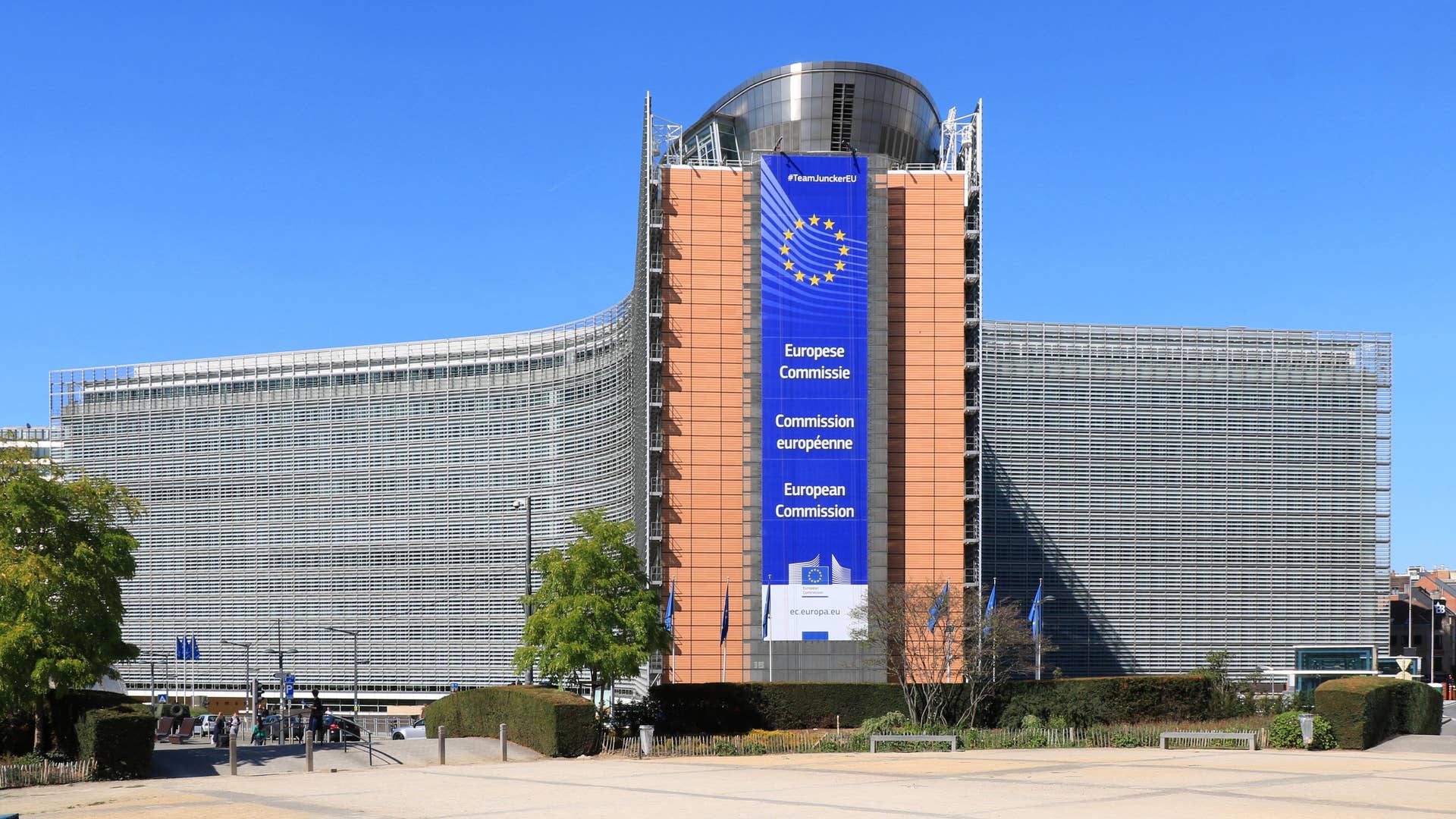Misrepresenting the requests of the Citizens’ Initiative or declaring them impossible is unlikely to fly in front of the European Commission

The Stop Killing Games initiative, which aims to establish regulations on how game publishers handle end-of-life for online games, has passed significant milestones in both the UK and the EU. In the UK, its petition gathered enough signatures to require a parliamentary debate, while in the EU, its Citizens’ Initiative has now almost certainly cleared the bar for examination by the European Commission.
That latter milestone is arguably much more important. European Citizens’ Initiatives require a million verified signatures and are thus relatively rare, meaning that they’re taken pretty seriously by the European Commission when they do pass. With over 1.4 million signatures gathered, it seems very likely that Stop Killing Games has exceeded the requirements, even given that some of the signatures will probably turn out to be invalid.
Such initiatives aren’t just given a symbolic few minutes of parliamentary time – the Commission conducts an investigation of the issue, including holding meetings with the initiative organisers and other stakeholders, conducting a public hearing in the European Parliament, and preparing a formal response. There’s no guarantee that they will do as the initiative asks, of course. But if they opt not to take action, they’re still required to file a full report and conduct meetings explaining their reasoning.
The industry response to Stop Killing Games has tended to be pretty dismissive – a little lip-service to the importance of keeping consumers happy, a lot of hand-waving about how what’s being asked is impossible. But the reality that the European Commission (and potentially the UK Parliament) will now be obliged to consider this issue has clearly rattled a few cages.

Responses now – such as those from industry organisation Video Games Europe, and recent statements from Ubisoft CEO Yves Guillemot – remain dismissive, but with a rather different tone. There’s more lip service to the aims of the campaign (presumably because effectively calling a million of your most passionate consumers a bunch of naïve mooks isn’t great PR in any circumstance), but the hand-waving about impossibility has been joined by some fairly bad-faith mischaracterisation of what Stop Killing Games is even asking for.
At its core, the ask is that online games should have an end-of-life plan that clearly and honestly lays out which aspects of the game can continue to function without support, and that, within reason, provides the frameworks required for players to continue to enjoy the game they’ve paid for.
Whether that’s realistic or not is a complex subject – it certainly differs from game to game, and some online titles are absolutely designed in ways that would make this kind of post-shutdown operation extremely costly to implement or even outright impossible to achieve. What this is not, however, is a demand that publishers and developers must continue supporting their online games forever.
Some online titles are absolutely designed in ways that would make this kind of post-shutdown operation extremely costly
There is no aspect of the petition that asks for publishers to continue updating software or hosting servers on their infrastructure, and those arguing against that strawman rather than engaging with what’s actually being discussed are being tremendously disingenuous.
The way that strawman has reared its ugly head speaks to the jitters that industry executives get every time they sense the EU, in particular, casting its beady eye in this direction. The EU’s regulatory drives regarding various tech industries have not always hit the mark, but they’ve by and large been pretty aggressively pro-consumer and willing to take on some deeply entrenched interests.
This is sometimes framed as the EU acting punitively towards US tech giants, especially since recent actions have tended to focus on ‘gatekeeper’ companies like Apple and Google. But it has shown plenty of willingness to regulate local firms as well – arguably the first EU regulatory action against a tech industry that really made an impact for its citizens was the banning of mobile network roaming fees, which almost exclusively impacted European network operators.

One of the things about EU tech regulation that makes companies especially nervous is precisely that kind of high-profile, pro-consumer win that advocates of the bloc’s regulatory efforts can point to – things like banning roaming fees or its more recent push to standardise all devices around USB-C are very popular with ordinary citizens, and make it very hard to sell the public on the standard boilerplate freedom-and-innovation arguments against regulation that work so well in some other jurisdictions.
Does that mean the EU is likely to side with Stop Killing Games? Honestly, it’s impossible to say. But the argument that European consumers are being sold expensive digital products which are then made obsolete through the voluntary action of their publisher rather than through strict technological necessity does have the feeling of something that could poke the European Commission into action, and that’s clearly enough to put a lot of people on edge about what happens next.
Moreover, the Commission does feel like it’s on the warpath with the tech industry to some extent at the moment – things like Apple’s semi-compliance with its orders have ensured that – so the timing for this hearing may not be great for the industry, politically speaking.
A set of industry codes and standards for handling end-of-life would be a good start
Given all of that, and the Commission’s track record in these matters, I’m unconvinced that bad-faith arguments that misrepresent Stop Killing Games’ positions are a great strategic move at this moment. The lip service part of the response is much better, but presenting the industry as responsible, pro-consumer, and willing to listen and improve is probably the best way to dodge the potential for (probably heavy-handed) regulation in this kind of situation, and that’s going to take more than lip service.
A set of industry codes and standards for handling end-of-life would be a good start. Because in truth, while this is a complex situation and many types of games would require a lot of work and investment to implement post-shutdown availability in some form, the reality is that there’s a bunch of low-hanging fruit here as well.
It’s not uncommon for games to have single-player modes or small-group multiplayer modes that become disabled when things like DRM servers or matchmaking systems are shut down, despite the fact that they could continue to work perfectly well post-shutdown with only relatively minor tweaks (or, better yet, with an end-of-life plan that’s been set up right from the outset).
Stop Killing Games is explicit about understanding that some functionality will naturally be degraded post-shutdown. A trade-off like shutting down matchmaking but letting people continue to play by directly inviting a group of friends is precisely the kind of reasonable compromise that the industry could proactively adopt as a standard.

Other types of game would be much harder to retrofit for post-shutdown functionality, and some of the proposed solutions – like providing server code for online titles after their shutdown so that fans can run their own servers – probably aren’t realistic as regulations. They may be lovely as an ideal-world hypothetical, but making this a matter of law would likely be a bridge too far into fiddling with the fundamentals of copyright and IP protection, even for the most pro-consumer members of the European Commission.
It’s worth noting, though, that making source code for old and obsolete games freely available was not unheard of in the relatively recent past, and was generally seen as a social good and a major boon for building the talents of the next generation of developers. Agreeing to consider something along those lines in end-of-life planning – and implementing it where technologically and legally possible – would be something the industry could do to paint itself in a more positive and consumer-friendly light.
It may, of course, be a bit late for that kind of manoeuvring – the European Commission investigation is now more or less guaranteed, and it would probably have been a lot better to be seen to engage proactively with consumers’ concerns before a million of them asked the world’s toughest tech regulator to intervene.
Nonetheless, the industry will also have a chance to represent itself and lobby for its preferred outcome in this process, and misrepresenting the positions of the Citizens’ Initiative would be a very poor strategy indeed. Words and actions that show the industry shares the Commission’s pro-consumer sentiments and takes these concerns seriously will mitigate the risk of getting stuck with a serious regulatory burden.
